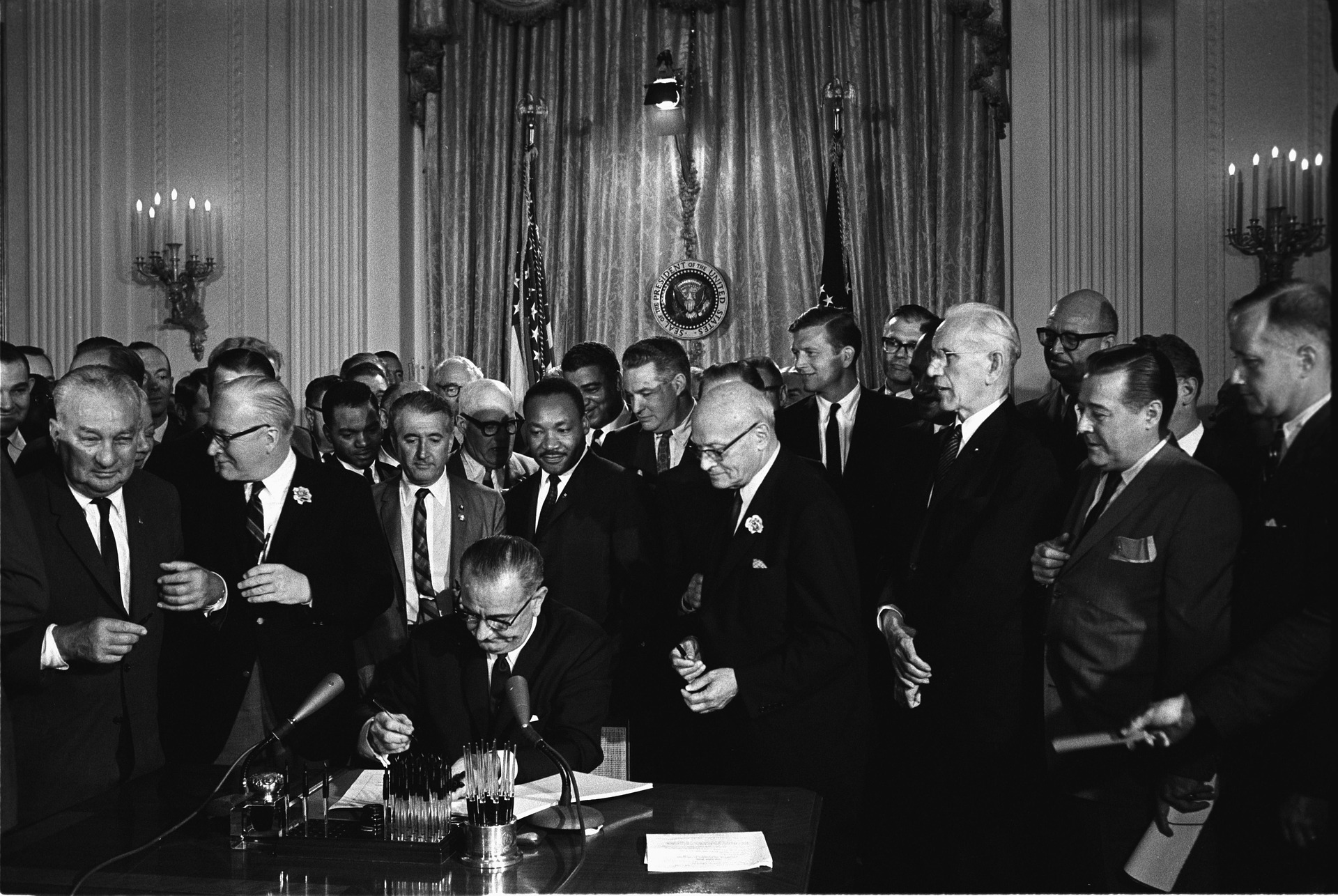
The Freedom From Religion Foundation, in commemorating civil rights legend Martin Luther King Jr. today, urges freedom-lovers in King’s memory to resolve to fight against endangered voting rights. The Supreme Court, beginning in 2013, began eroding the Voting Rights Act King fought so hard for. Undemocratic public officials are seeking ever more hostile and draconian voting rights restrictions, many explicitly targeting people of color, as well as low-income citizens and students of all races.
The prominent civil rights exemplary activist’s strategy for protesting racial discrimination, on both state and federal levels, was built on the foundation of nonviolent activism. King made a huge impact during the civil rights movement of the late 1950s and early 1960s, through speeches, peaceful boycotts and extensive community involvement.
King and other Black activists and civil rights promoters endured discrimination, threats, attacks, assaults and even assassination while peacefully agitating for passage of the 1964 Civil Rights Act, the Voter Rights Act of 1965 and the Fair Housing Act of 1968. It was King’s shocking assassination that led to passage of the Fair Housing Act, which had been stalled by racists in Congress. Hours after King’s killing in Memphis on April 4, 1968, President Lyndon B. Johnson realized the nation’s shame, grief and anger could be harnessed to finally push the major piece of legislation through.
A year ago, the House passed the John Lewis Voting Rights Act, named for the late John Lewis, who admired and worked with King. Lewis, only 25, led the first of three marches across the Edmund Pettus Bridge in Selma, Ala., in 1965, LINK where he and others were brutally attacked. Lewis served in Congress from 1987 until his death in 2020. The bill named for him would restore the Voting Rights Act requirement that was struck down by the Supreme Court, to require states with a history of voting rights discrimination to get Department of Justice preclearance before making any changes to voting laws. This bill is the bare minimum needed. Although the House passed it, the Senate failed to pass the bill last session, thanks to the filibuster. Unfortunately, passing any such reform in the 118th Session will be an uphill battle, given the congressional impasse.
An even more sweeping bill, the Freedom to Vote Act, would:
- Make Election Day a national holiday (common in many democracies).
- Allow early voting at least two weeks prior to Election Day including nights and weekends.
- Allow voting by mail with no excuses, and drop boxes for such ballots.
- Require states to make voting more accessible for people with disabilities.
- Require same-day voting registration and online registration, and many other needed protections.
King would surely say “Amen” to the Freedom to Vote Act. By the way, despite his involvement in the Christian community, King understood the role that religion played in racism. During a sermon in 1956, King famously said, “You must face the tragic fact that when you stand at 11 o’clock on Sunday morning singing ‘All Hail the Power of Jesus Name’ and ‘Dear Lord and Father of all Mankind,’ you stand in the most segregated hour of Christian America. They tell me that there is more integration in the entertaining world and other secular agencies than there is in the Christian church. How appalling that is.” Although King was a Baptist minister, he was a supporter of the separation between state and church, speaking up on behalf of the early 1960s decisions against prayer in public schools.
The racial and economic injustices, violence and undemocratic inequities King fought against still exist. Honor King’s legacy by fighting for civil rights — and that starts at the ballot box with congressional reform. Pass the Freedom to Vote Act.
The Freedom From Religion Foundation is a national nonprofit organization with more than 39,000 members across the country. Our purposes are to protect the constitutional principle of separation between state and church, and to educate the public on matters relating to nontheism.

